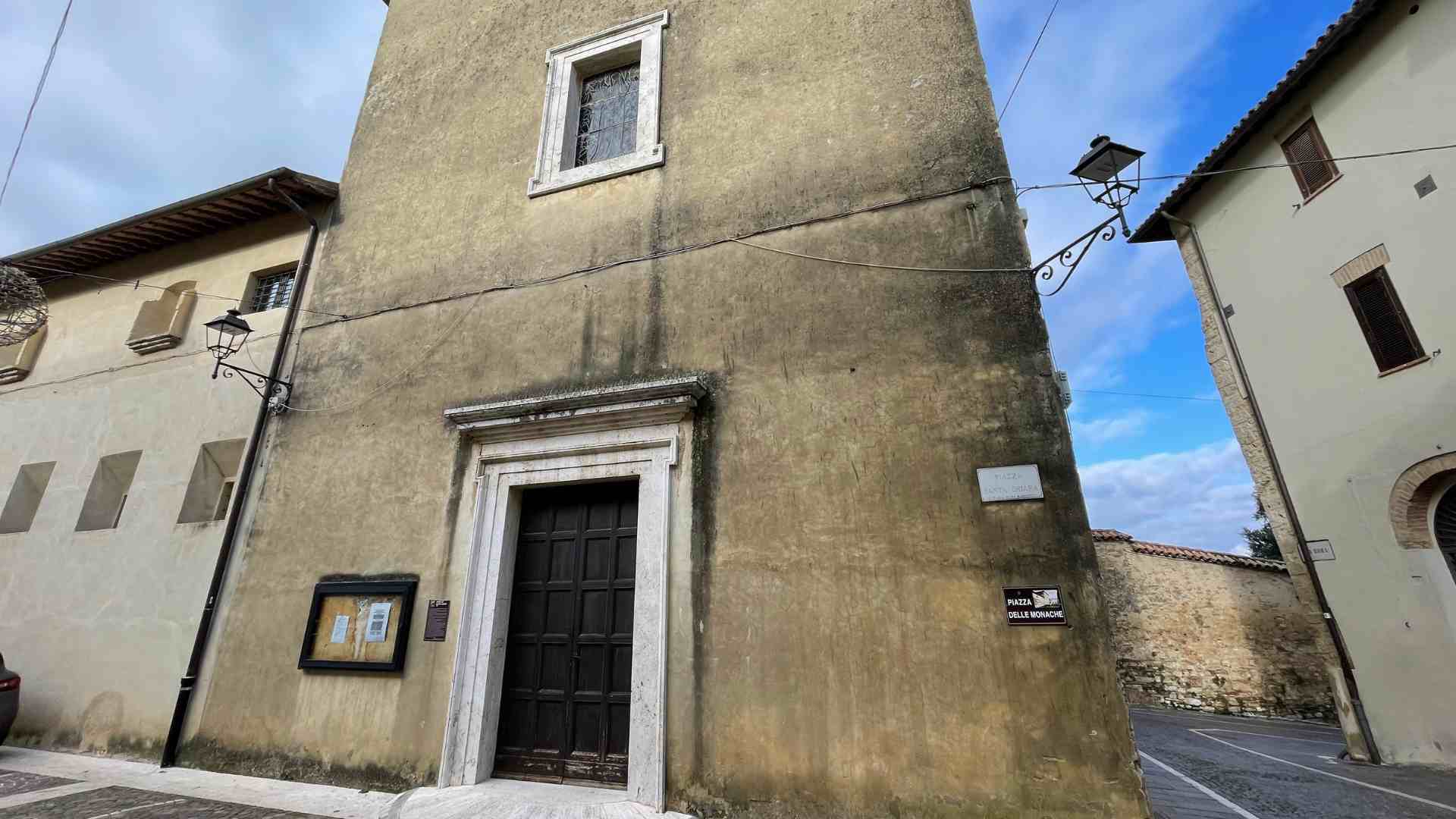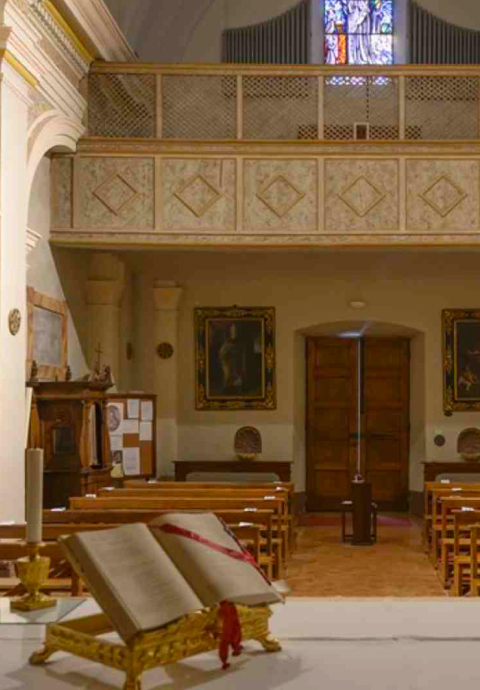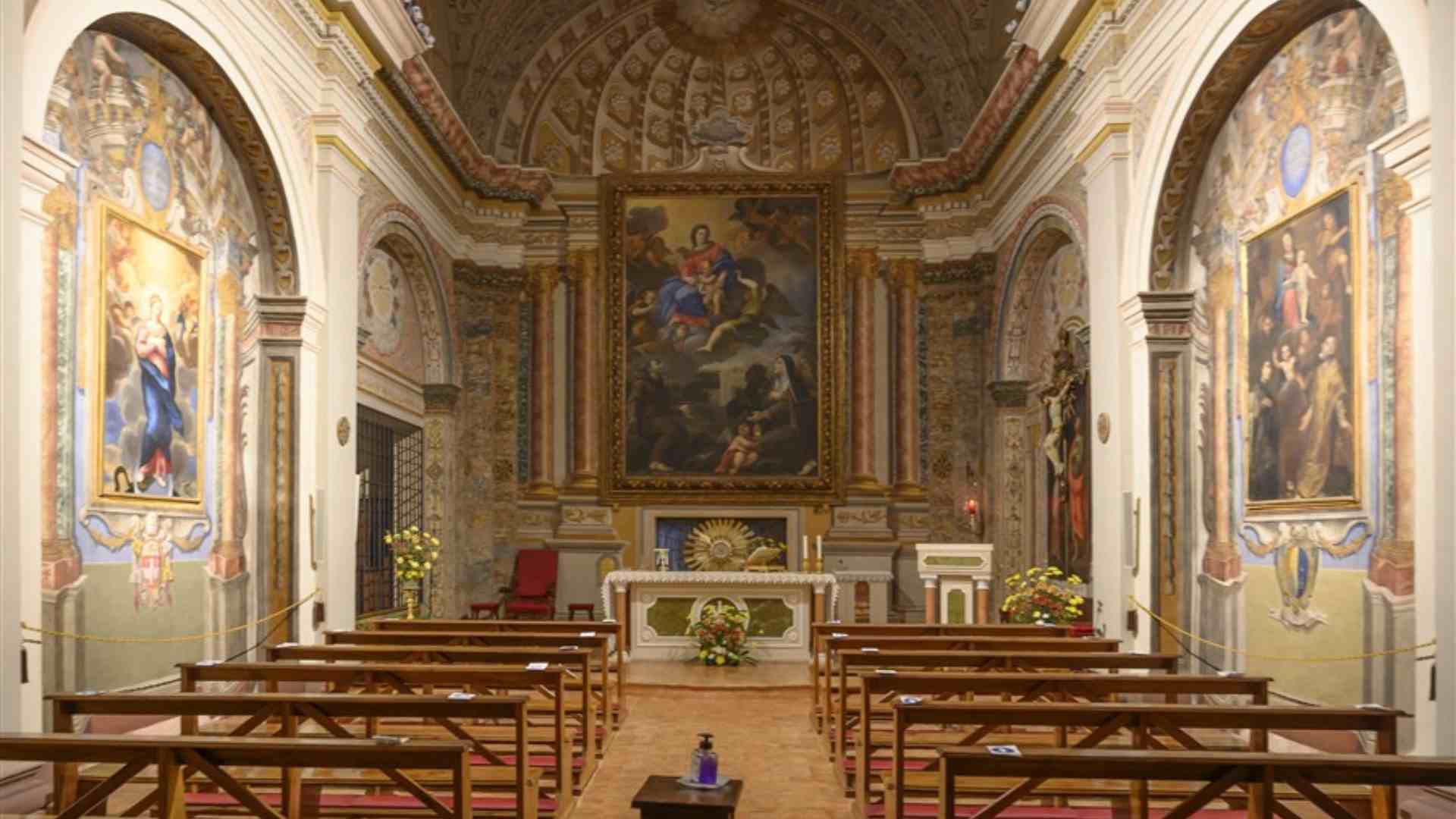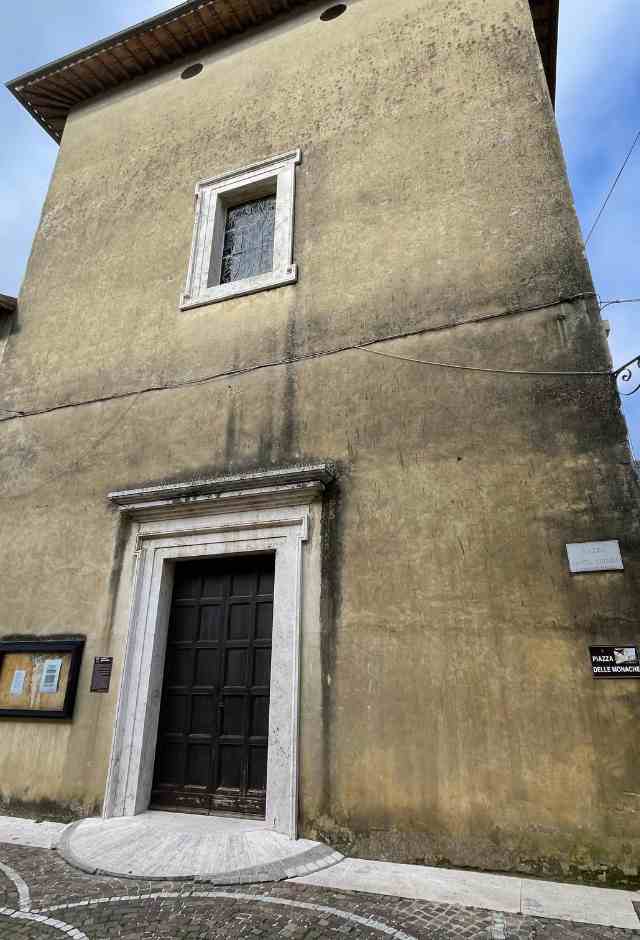
punto di interesse
point of interest


The monastery of the Poor Clares is located north of the historic center of Montecastrilli. The complex included the Church of Santa Chiara, where today is the Holy Mass celebrated daily and it is freely open for the nuns and the faithful.
The Church of Santa Chiara was built between the 15th and 16th centuries benefiting from a testamentary bequest (February 1, 1649) of the nobleman Cinthio Accursi of Todi, a descendant of a family from the territory of Montecastrilli.
The construction was finished in 1663, respecting the intentions of the benefactor, the Church was solemnly consecrated and dedicated to Saints Francis and Clare (November 8, 1663) as reported in the tombstone preserved inside the Church itself.
After major works carried out on the vault and modificated the high altar, the Church was consecrated again on August 27, 1729 by Todi’s Bishop Ludovico Anselmo Gualtiero.

The monastery of the Poor Clares is located north of the historic center of Montecastrilli. The complex included the Church of Santa Chiara, where today is the Holy Mass celebrated daily and it is freely open for the nuns and the faithful.
The Church of Santa Chiara was built between the 15th and 16th centuries benefiting from a testamentary bequest (February 1, 1649) of the nobleman Cinthio Accursi of Todi, a descendant of a family from the territory of Montecastrilli.
The construction was finished in 1663, respecting the intentions of the benefactor, the Church was solemnly consecrated and dedicated to Saints Francis and Clare (November 8, 1663) as reported in the tombstone preserved inside the Church itself.
After major works carried out on the vault and modificated the high altar, the Church was consecrated again on August 27, 1729 by Todi’s Bishop Ludovico Anselmo Gualtiero.

The structure has a single nave and evokes the Umbrian Baroque architectural style. The vault above the altar is adorned with elegant frescoes.
From the entrance it is possible to see a large oil painting on the wall behind the High Altar highlights the Franciscan character of the church: “Madonna among Angels holds the Child to Saints Francis and Clare” with Anthony of Padua and Mary Magdalene in the shadows in contemplation. The artwork (1678) is by the Rieti painter Girolamo Troppa and is made more impressive by the majestic wood pulp frame that supports it.
To the left of the high altar, made in the years 1997-1998, note the new wooden choir, where the nuns sit during the celebrations, a large iron grate marks the separation of the enclosure from the nave of the church.
Prior to the construction of the new choir, the nuns attended celebrations sitting in the mezzanine above the entrance door to the Church.
During the same period, in addition to the chancel, the present marble altar was built to replace the 17th-century wooden altar in order to adapt the services to the new liturgy, as well as the marble floor was restored with the present one in Franciscan terracotta.
Behind the altar, under the Tabernacle, not visible because it is walled up behind a back, is the urn of Sister Maria Lanceata Morelli, who died in the odor of Holiness on August 26, 1762. Still behind, not visible from the church, is the ancient choir where the nuns gather for their prayers.

The structure has a single nave and evokes the Umbrian Baroque architectural style. The vault above the altar is adorned with elegant frescoes.
From the entrance it is possible to see a large oil painting on the wall behind the High Altar highlights the Franciscan character of the church: “Madonna among Angels holds the Child to Saints Francis and Clare” with Anthony of Padua and Mary Magdalene in the shadows in contemplation. The artwork (1678) is by the Rieti painter Girolamo Troppa and is made more impressive by the majestic wood pulp frame that supports it.
To the left of the high altar, made in the years 1997-1998, note the new wooden choir, where the nuns sit during the celebrations, a large iron grate marks the separation of the enclosure from the nave of the church.
Prior to the construction of the new choir, the nuns attended celebrations sitting in the mezzanine above the entrance door to the Church.
During the same period, in addition to the chancel, the present marble altar was built to replace the 17th-century wooden altar in order to adapt the services to the new liturgy, as well as the marble floor was restored with the present one in Franciscan terracotta.
Behind the altar, under the Tabernacle, not visible because it is walled up behind a back, is the urn of Sister Maria Lanceata Morelli, who died in the odor of Holiness on August 26, 1762. Still behind, not visible from the church, is the ancient choir where the nuns gather for their prayers.

Discover the Monastery of Santa Chiara
A walk in the center of Montecastrilli
The territory of Montecastrilli
discover all the points of interest of the village
Information, appointments and travel proposals on:
The Progressive Web App is part of the project “Le Terre dei Borghi Verdi”, realized in collaboration and with the contribution of Regione Umbria – Assessorato al Turismo
©2021 Le Terre dei Borghi Verdi
Le Terre dei Borghi Verdi
Welcome in Southern Umbria,
where the slowness becomes value
Information, appointments and travel proposals on:
The Progressive Web App is part of the project “Le Terre dei Borghi Verdi”, realized in collaboration and with the contribution of Regione Umbria – Assessorato al Turismo
©2021 Le Terre dei Borghi Verdi